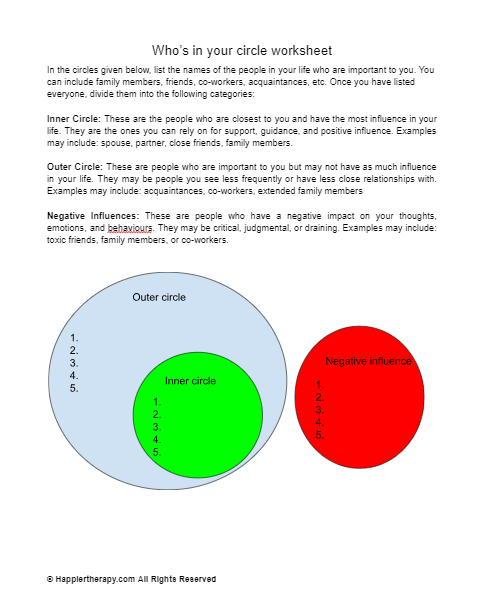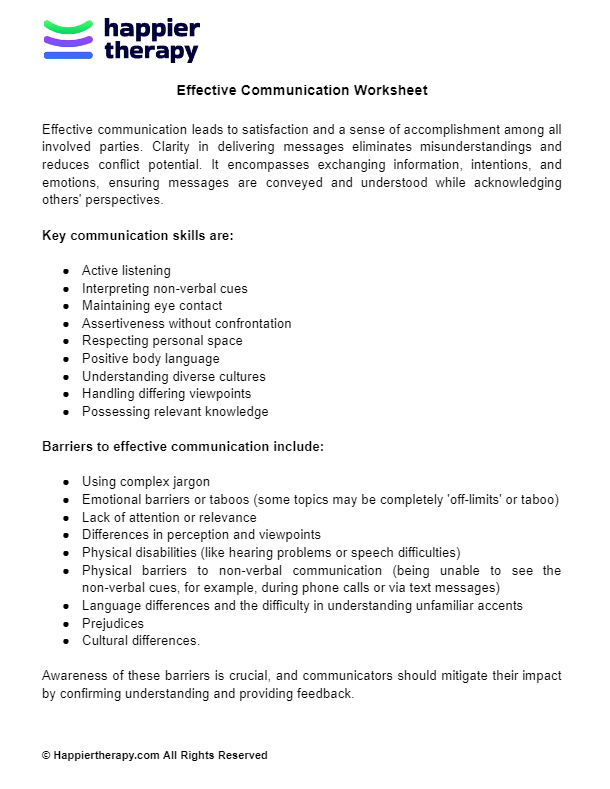Characteristics of a healthy relationship worksheet
Download Worksheet
What is the theory behind this Characteristics of a healthy relationship worksheet?
Research on interpersonal relationships has established strong links between a healthy relationship and its positive effects on one’s physical health and subjective wellbeing. On the contrary, unhealthy relationships are found to be associated with low self-esteem, depression, anxiety, and even substance abuse.
How will the worksheet help?
The worksheet will educate individuals in couples therapy about the characteristics of a healthy relationship that they can use to assess their own relationship. It will also highlight any difference or similarity in their individual perspectives.
It is important for couples to evaluate the quality of their relationship so that problem areas can be addressed in the therapeutic process.
How to use the worksheet?
Read through the given characteristics and answer the questions that follow. This worksheet is divided into two parts. Part A includes a list of characteristics of a healthy relationship along with their description. Part B consists of some reflective questions based on the characteristics listed in Part A.

 By
By


